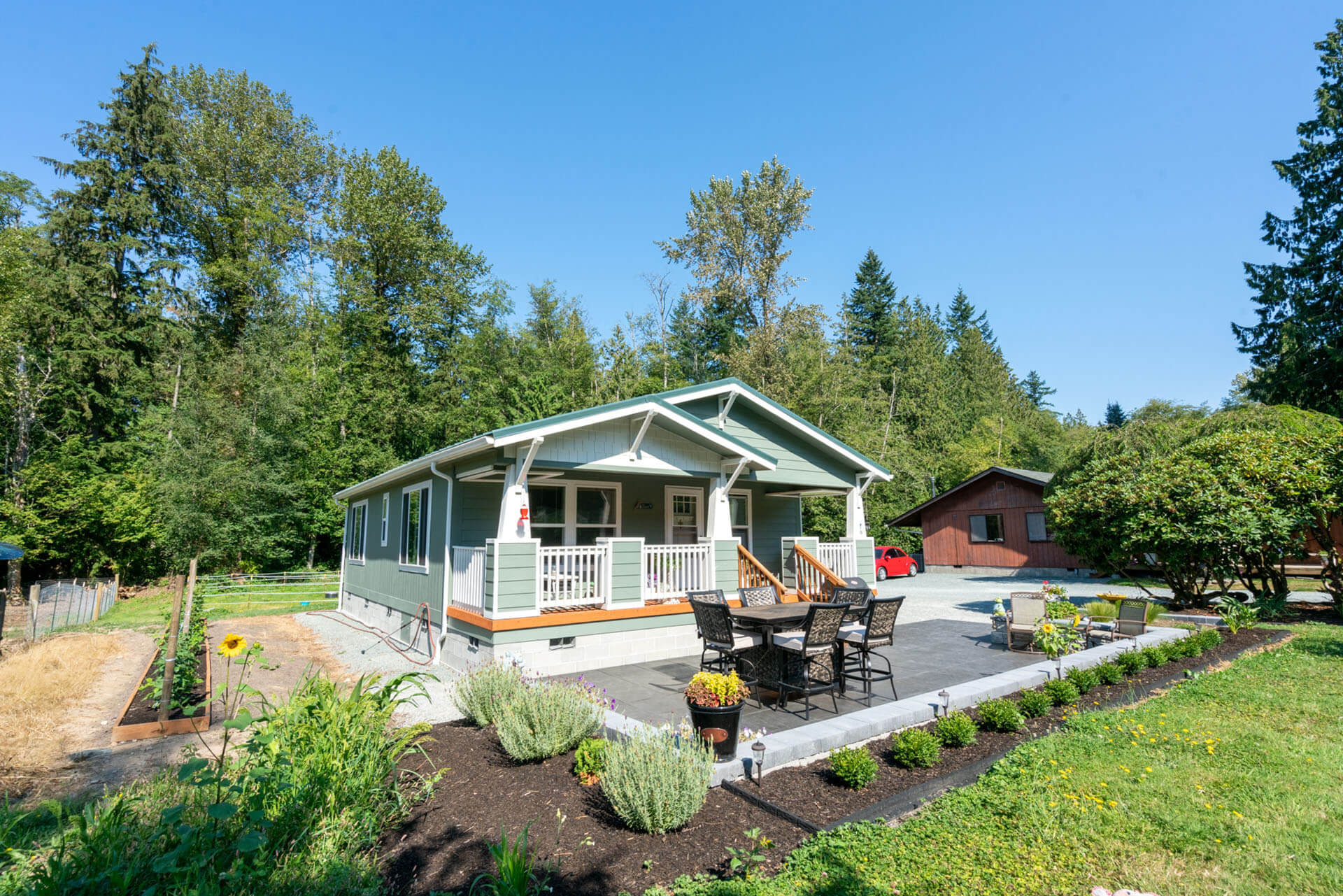
Accessory Dwelling Units (ADUs) are smaller, self-contained homes that are located on the same lot as an existing single-family house. They are often referred to by various nicknames such as granny flats, in-law units, or secondary suites. The specific requirements and regulations for ADUs may vary depending on the local and state zoning regulations. ADUs are a popular housing option for individuals or families seeking multi-generational living arrangements that offer additional privacy or for those who require a dedicated space for working from home while maintaining a separation between personal and professional areas.
ADUs are designed as separate living spaces that are smaller in size compared to the main house on the property. They can be attached to the primary residence, located within a basement or garage, or constructed as detached units. ADUs typically include essential features found in a traditional home, such as a bedroom, bathroom, living area, and kitchenette or full kitchen facilities. The design and structure of ADUs can vary, ranging from simple and modest to more elaborate and customized layouts, depending on the homeowner’s preferences and the local building regulations.
ADUs provide a distinct ownership opportunity, allowing homeowners to have an additional dwelling unit on their property. The owner of the primary residence typically retains ownership of the entire property, including the ADU. This arrangement provides independence and autonomy for the ADU occupants, allowing them to have their own private living space while still being in close proximity to the main house. ADUs can serve as a flexible housing solution, accommodating various living arrangements and meeting the changing needs of homeowners and their families over time.
The availability of ADUs varies depending on the local regulations and zoning policies. Some areas may have specific guidelines in place to encourage the construction of ADUs, while others may have more restrictive rules or limitations. In some cases, homeowners may convert existing spaces within their property into ADUs, such as converting a garage or basement. Alternatively, new construction may be necessary to create a separate ADU structure. The diverse availability of ADUs offers homeowners the flexibility to explore different options based on their specific circumstances and the regulations governing their location.
Advantages of Accessory Dwelling Units (ADUs) include the potential for multi-generational living arrangements, allowing family members to reside in close proximity while maintaining separate living spaces and privacy. ADUs also offer the opportunity for homeowners to generate rental income by renting out the unit, providing financial benefits and flexibility. Additionally, the addition of an ADU can increase the overall value of the property, making it more appealing to potential buyers or renters.
When considering ADUs, several factors should be taken into account. Understanding the local zoning regulations is crucial, as it determines whether ADUs are permitted and what requirements must be met. Obtaining the necessary permits and approvals is also essential before constructing or converting an ADU. Homeowners should carefully consider the construction and maintenance costs associated with building or converting an ADU, including construction expenses, permits, utilities, and ongoing maintenance and upkeep. Furthermore, the impact of an ADU on the neighborhood should be considered, taking into account factors such as parking availability, privacy concerns, and the overall character of the community.